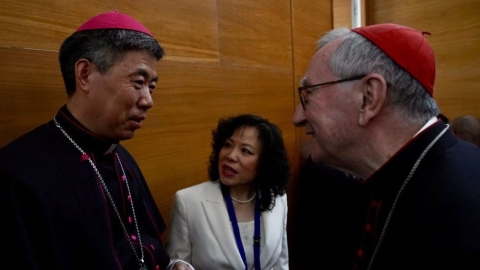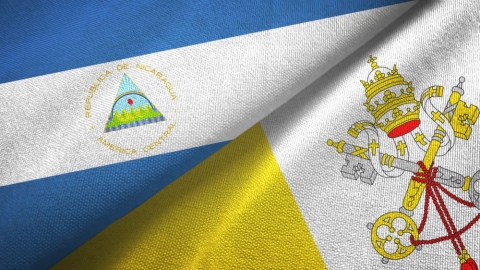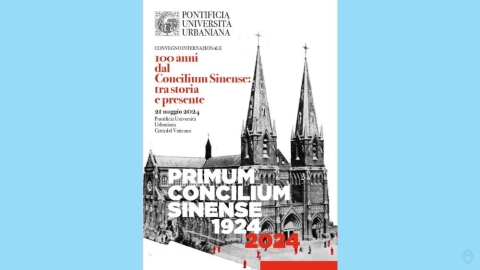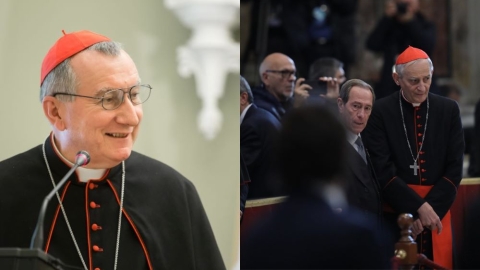Synod Fathers in the Image of Francis (2)

Published on July 7, 2023, the list of participants in the XVI General Assembly of the Ordinary Synod of Bishops – or Synod on Synodality – in October, was released to the press by the Vatican. It is particularly instructive regarding Pope Francis’s intentions.
When reading the list, a question comes to mind:
Is the Synod Predetermined?
Before considering this list of synod participants, very ideologically oriented, a person has to wonder if everything has not been settled, even before the opening of the assembly next October. This is what Fr. Joachim Heimerl, priest in Vienna, Austria, and university professor wrote on the kath.net site on July 11:
“10 years ago, one would never have thought that a synod of bishops would become the wrecking ball of the Church, not even when Pope Francis convened this synod as a alternative to Germany's schismatic drift [with the Synodal Path]. Meanwhile, the German’ agenda is also on the table in Rome: a new Church must see the light of day.”
“A more feminine and also a homosexual Church, a 'multicolored' Church in which – with the exception of the banished 'traditionalists' – everyone feels comfortable and no one is offended: above all not on celibacy, nor on the so-called ‘office question,’ and certainly not on the indissolubility of marriage.”
“The Gospel is simply adapted under the sign of the rainbow, sin is canonized by (false) mercy, and the Church is sold off by bishops and cardinals. We can say it without fear of being wrong: the Church is in free fall, and so is the papacy.”
It is this resumption of the themes exposed during the German Synodal Path by the Working Document of the Roman Synod (June 20, 2023) which makes some wonder if it was not a pre-synod, and if really the Roman Synod will be an alternative to the German schismatic drift.
Further on Fr. Joachim Heimerl adds: “In this context, it is not surprising that it is claimed everywhere that Pope Francis, after the death of Benedict XVI, wants to finally bring a “new” Church into being, to put his “house” in order before his death and that the synod is precisely his instrument for this. – No one can say whether this is really the case.”
“What is striking is that the Pope’s ‘friends’ in particular say this very often and thus cause the greatest damage to his pontificate. But be that as it may, a wild boar is currently raging in the Lord’s vineyard [alluding to the condemnation of Luther in the 16th century] and, while Pope Leo X then put him in his place for a while, [today] the gates of the Church have been thrown wide open to him under Francis.”
“Voices of warning, like those of the Archbishop Emeritus of La Plata in Argentina [Msgr. Hector Aguer] or the valiant Bishop of Tyle, [Texas] in the United States [Msgr. Joseph Strickland], are lost in the wind. Critics of the new course being given to the Church are often silenced publicly.”
“The current pontificate seems to be increasingly separating itself from the previous ones, which is illustrated by two turning points: the post-synodal exhortation Amoris laetitia and the Motu proprio Traditionis custodes. Both texts mark an obvious rupture in the continuity of the pontifical magisterium, a rupture which is – in fact – impossible and which nevertheless now seems to be consolidated more and more under the sign of the World Synod.”
And he recalls: “There is no ‘Franciscan’ Church, no ‘Jesuit’ Church and also no “synodal” Church. There is no Church that breaks with itself, that cuts the roots of its tradition, and in which a pope could still demand the ‘obedience’ from the faithful. The decades after the Second Vatican Council have shown this very painfully and dramatically intensified the exodus from the Church.”
Along the same lines, the pope's compatriot who runs the blog The Wanderer expressed his concern on July 27: “The synod on synodality is a very clear sign that we are already at a point of no return, regardless of the results obtained there, even if nothing happens once that assembly is over.”
“The mere fact that the Church allows and promotes a meeting with the institutional solemnity of a synod to discuss matters that seek to directly alter the faith and morals as they have been transmitted to us by the apostles and defended by all fathers of the Church and masters of theology is a resounding sign that something very deep has broken.”
“A good part, a very good part I would say, of the hierarchy no longer has faith. For them, the Church is nothing more than one organization among many others, and everything she thought and taught about herself is nothing more than fables understandable in the past, but absolutely untenable today.”
What strikes this Argentinian, just like the Austrian academic Josef Seifert (cf. “An academic denounces...”), is the “frightening silence”: “it is the lack of reaction of those who should have reacted.”
“Except for a few voices – Cardinal Gerhard Ludwig Müller, Bishop Joseph Strickland [of Tyler, Texas, USA] and perhaps a few others – none of the pastors whose duty it is to protect the flock, none of the cardinals whose job it is to accompany and advise the pope, has said anything about the seriousness of what Bergoglio has done.”
Related links
(Sources : kath.net/The Wanderer/DICI n° 435 – FSSPX.Actualités)
Illustration : Flickr / Katholische Kirche Vorarlberg (CC BY-NC-SA 2.0)





